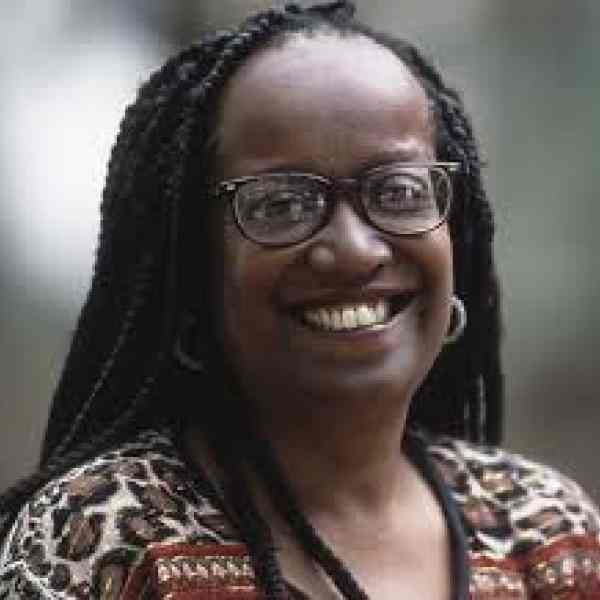Introduction
Aparecida Suely Carneiro, sociologist and tireless advocate of the rights of black women in Brazil, is setting out to strengthen the emerging black women's movement. Her organization builds bridges between the separate black and women's movements in order to jointly address the particular problems confronted by women of color in Brazil.
The New Idea
Suely has set up a strategic black women's organization, GELEDES, which intertwines concerns of race and gender, and addresses the particular problems confronted by women of color in Brazil. GELEDES's focus is to take action on health, violence, and legal assistance and to produce data that will support evidence of discrimination against black women.Parallel movements advocating the rights of women and blacks exist, but neither respond to the specific marginalization of black women. GELEDES's aim is to fill this gap.
The Problem
Discrimination and the host of socioeconomic problems that stem from it are a daily reality in the lives of Brazil's black women. Lack of educational and employment opportunities, police harassment, and lack of access to adequate housing and health care are but a few of the indignities and obstacles Afro-Brazilian women face regularly.Beginning in the late 1970s, women and black rights movements began to spring up throughout Brazil. Since then, the feminist movement has seen significant accomplishments in the regularization of divorce laws and the institution of a national women's health program. The black movement has struggled to empower its dispirited and disenfranchised constituents while trying to engender consciousness and empowerment in a society little concerned with its cause. It scored an impressive victory when the 1988 constitution outlawed all forms of racial discrimination.Both movements have been vitally important in challenging the socioeconomic and political dominance of the country's rather macho white male minority. Yet, many black women activists feel that their specific situation--their triple oppression of being black, female, and poor--has not been adequately addressed or defended by either movement. The women's movement is largely composed of white middle- and upper-class women who are not always sensitive to the particular difficulties of race and poverty. The black movement, though it is increasingly effective in addressing the race problem, is dominated by men who are sometimes insensitive to the gender issues.
The Strategy
Suely divides her work in three areas: health, human rights, and communication. Through health workshops, black women from poor communities explore reproductive health issues (sexuality, contraception, sexually transmitted diseases, breast feeding, etc). Suely is also interested in exploring alternative health care practices that derive from the African-based religions that are still thriving in Brazil's black community. In addition, the health program sponsors discussion and support groups, and publishes educational pamphlets on black women's health.Suely's second strategy is to implement a legal aid program that will bring discrimination cases to court in an effort to apply the newly won constitutional guarantee against discrimination. Through GELEDES's Human Rights/SOS Racism program, Carneiro program, Suely worked last year with a team of two lawyers, a researcher, and two legal interns to file twenty-one suits on behalf of racial discrimination victims. This is ground-breaking litigation that Suely hopes will provide precedents for future discrimination cases.While the cases await trial, Suely and her staff are collaborating with the Nucleus for the Study of Violence at the University of Sao Paulo to analyze these and other complaints, looking for trends in the kinds of abuses suffered. Documentation of the cases is incorporated into a database that alerts a national network of human rights activists to the abuses. Her Human Rights/SOS Racism program will also conduct public education campaigns, formulate policy, and lobby public policy makers on issues of importance to Brazil's black female population.The third feature of Suely's three-pronged strategy is to disseminate this work as widely as possible through a communication program that uses pamphlets, publications, media, and seminars.
The Person
Suely comes to this ground-breaking work with a long history of work experience on race and women's issues. In addition to her work with GELEDES's Black Women's Institute, Suely was coordinator of the program on black women for the National Council of Women's rights. She was an organizer of the first National Meeting of Black Women in 1988, and collaborated with the Brazilian Bar Association in organizing five seminars for the Winnie Mandela Tribunal. Topics included black women and the workforce, black women and violence, reproduction and demographic dynamics, the representation of black women, and black women and legislation.Prior to her work on the National Council of Women's Rights, Suely had undertaken similar work on the state level as executive committee member and secretary general of the Sao Paulo State Council on the Condition of Women.Suely has published and spoken widely on the plight of black women in Brazil. A woman of wide intellect, she has raised public discussions on a variety of topics, ranging from violence and discrimination to reproductive health, the constitution, and Afro-Brazilian religions. She builds bridges between social movements, dialogues with public policy makers, and forges new directions for an uncharted field in the Brazilian social landscape, namely, the socio-cultural and political rights of black women.
